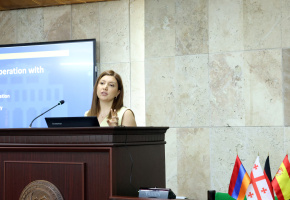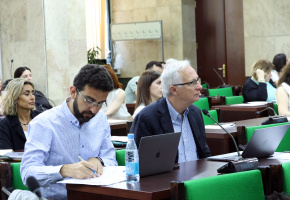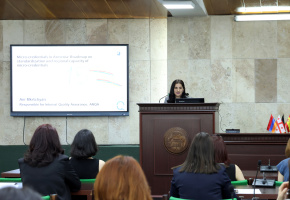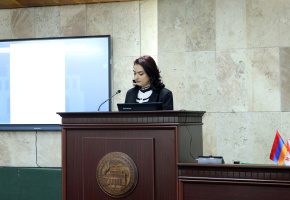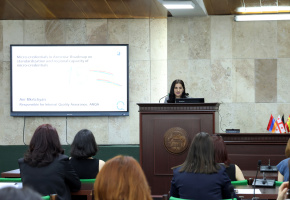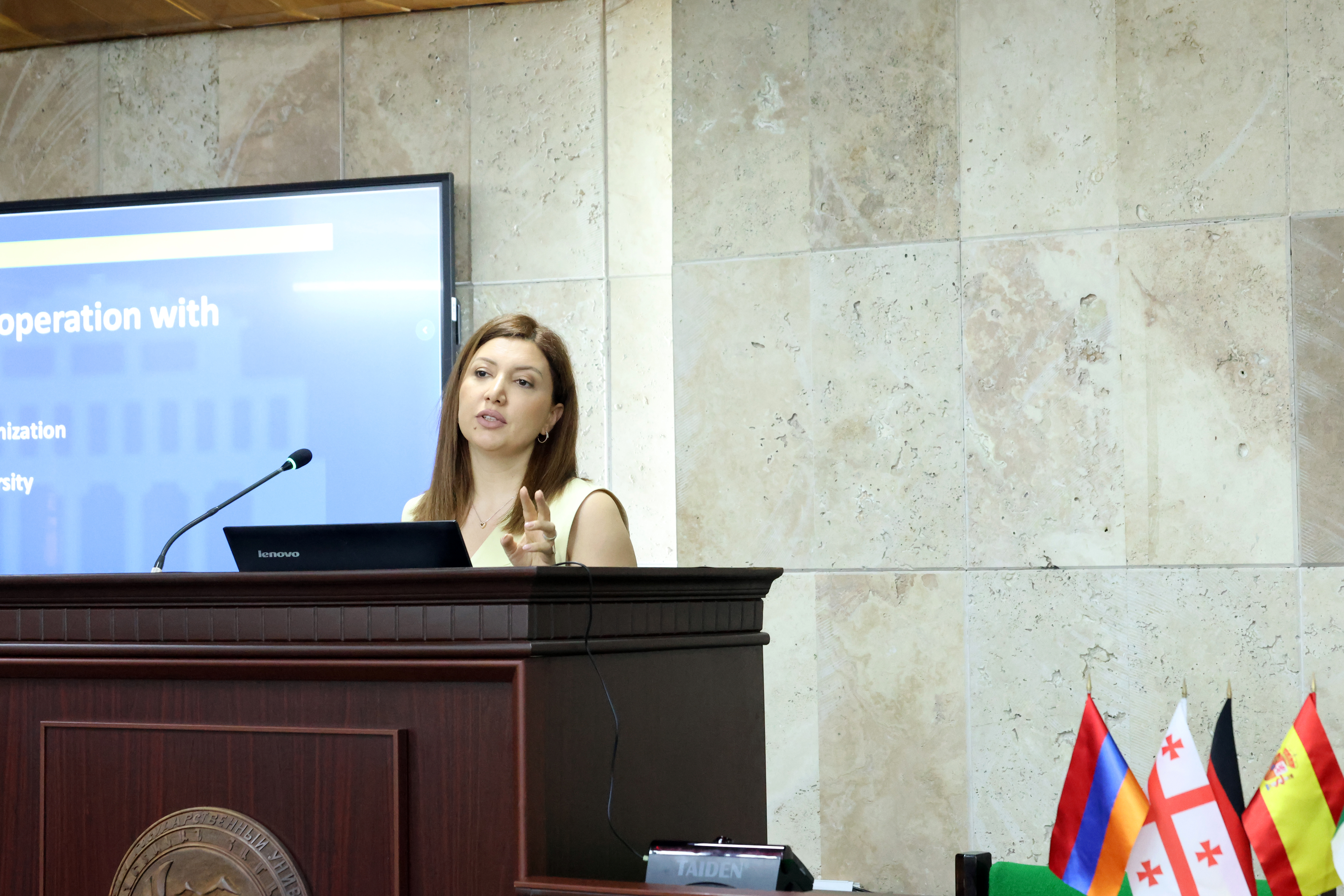June 03, 2025 | 12:27
Conferences
Education
International cooperation
Micro-credentials open new pathways in higher education development
The latest workshop of the EU Erasmus+ MICRO-GEAR has commenced at YSU Academic Council Session Hall. The project aims to support structural reforms in the education sector by facilitating the widespread adoption of micro-credentials within higher education systems, particularly in Armenia and Georgia.
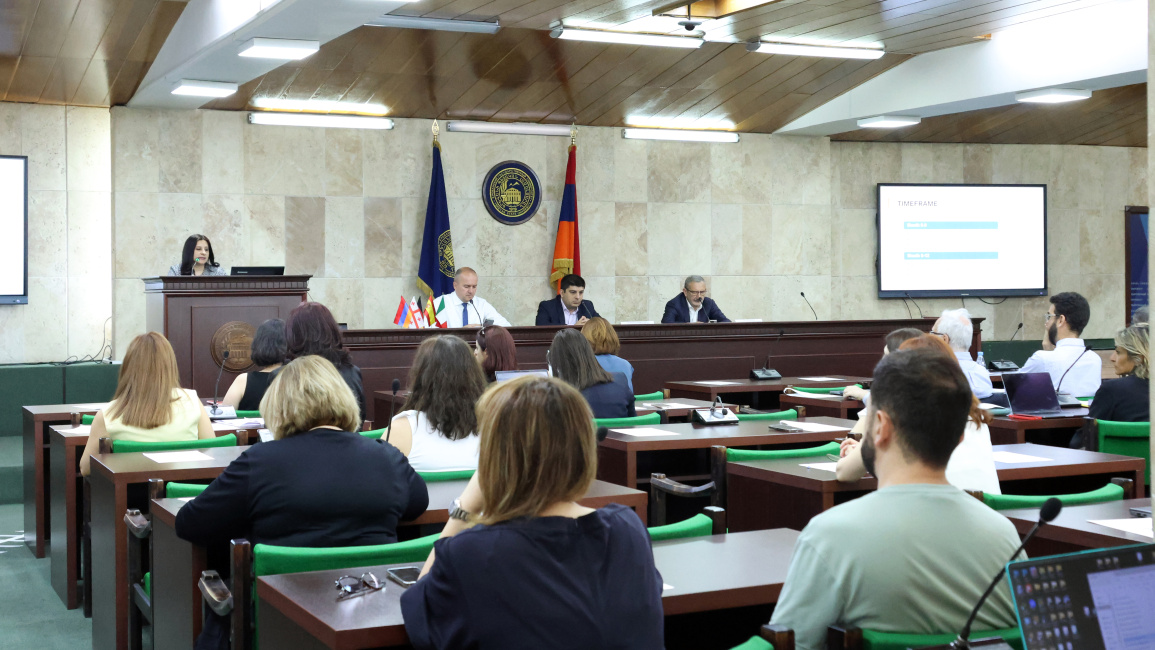
The project titled "Micro-Credentials for Higher Education Systems of Georgia and Armenia: South Caucasus Lighthouse" focuses on enhancing the role of micro-credentials in the context of modernizing higher education — including lifelong learning and educational systems. The project is conducted in a hybrid format, simultaneously enabling both in-person and online participation in Yerevan and Tbilisi.
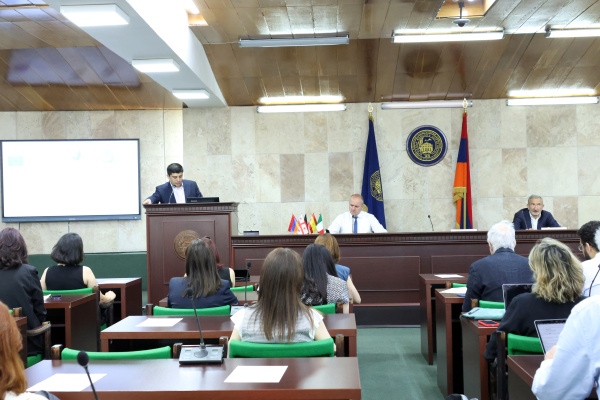
Representatives of academic institutions, civil society organizations, field experts, and specialists from Armenia, as well as various European universities, have convened to discuss the principles of developing micro-credentials, challenges in policy formulation, and potential opportunities.
Rafayel Barkhudaryan, Vice-Rector for Academic Affairs at YSU, welcomed the attendees and introduced the project participants and partner organizations, emphasizing the workshop’s significance in advancing regional academic cooperation and the development of educational systems.
"I hope that over the next two days — today here at YSU and then at Georgian Technical University — we will discuss ways to improve our educational systems. Micro-credentials can become a vital tool for competency-based learning, while also fostering stronger regional cooperation. Let us work together to transform our discussions into practical strategies that will benefit not only universities and employers but, most importantly, our students," stated the vice-rector.
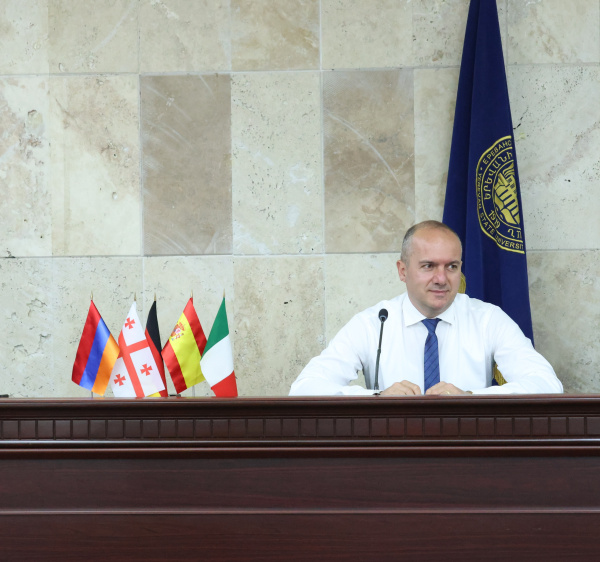
Arsen Aproyan, Department Head at YSU International Cooperation office, underlined the importance of the MICRO-GEAR project for universities, particularly in promoting the widespread application of micro-credentials and the development of joint initiatives.
"I am very pleased to welcome you today to Yerevan State University. I am glad to greet our partners from Italy, Spain, Germany, and Georgia. We have been collaborating within this project for over a year now. This initiative is not only interesting but also highly important from the perspective of developing higher education institutions. I hope that, with active engagement from our partners and guests over the coming days, we will be able to formulate a clear roadmap to define the main goals and activities aimed at advancing micro-credentials and alternative learning pathways in our universities," he remarked.
The workshop was also opened with welcoming remarks by the Project Manager, Professor Zaza Tsiramua. This was followed by several presentations and discussions aimed at clarifying the concept of micro-credentials, their possible inclusion in national agendas, and other related issues. The discussions, focused on introducing innovative educational models, are facilitating experience exchange and strengthening regional cooperation.
The ongoing implementation of the project attests to the fact that modern education systems are striving to become more flexible, personalized, and integrated to better meet the needs of both students and the labor market.
